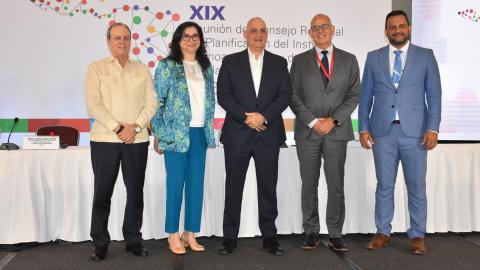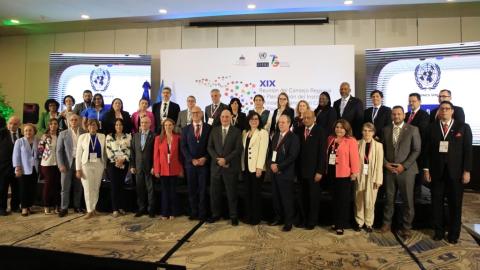News
Adoption of a work plan to encourage development of gender statistics across the region and training-of-trainers projects to replicate knowledge of statistical measurements in national and subregional spheres are among the objectives of the 7th Executive Committee Meeting of the Statistical Conference of the Americas (SCA). The Statistical Conference of the Americas is a subsidiary body of ECLAC that operates as a high-level intergovernmental forum for the promotion of official statistics and regional cooperation in this field.
The meeting will be held 29 and 30 November at 10:00 a.m. at the National Statistics Administration Department (DANE), in Bogotá, Colombia (Ed. DANE Conference Hall, Carrera 59 No. 26-70 Interior 1 Centro Administrativo Nacional)
Participating in the opening event will be Osvaldo Kacef, Officer in Charge of the ECLAC Division of Statistics and Economic Projections; and President of the SCA-ECLAC Executive Committee and Director of DANE, Héctor Maldonado.
At the SCA-ECLAC meeting held last July in Chile, members designated Colombia to preside over the SCA Executive Committee -- made up of France, Honduras, Mexico, Paraguay and the Dominican Republic -- for the 2007-2009 period. Nineteen countries (including eight Caribbean nations) are participating as observers in the Bogotá meeting, as well as representatives of 11 international agencies and organizations.
At this meeting, the Executive Committee will approve a programme for gender statistics throughout the region, with input from the United Nations Development Fund for Women (UNIFEM) and ECLAC. This aims to systematize national statistical information from a gender perspective and encourage application of time use surveys the countries of the region.
Another proposal outlines use of household surveys to measure the contribution of women's unpaid work and complement data already being collected by ECLAC to monitor Millennium Development Goals (MDGs).
Also to be discussed are ways to maximize the Knowledge Transfer Network, a consortium of the training centers of the National Statistics Bureaus in the region, strengthen the exchange of knowledge and experiences at intermediate and advanced levels and standardize local and subregional survey-taking.
Other topics on the agenda include approval of technological cooperation measures, such as public domain software use for census data and surveys conducted in Brazil, Colombia, Mexico and the United States.


